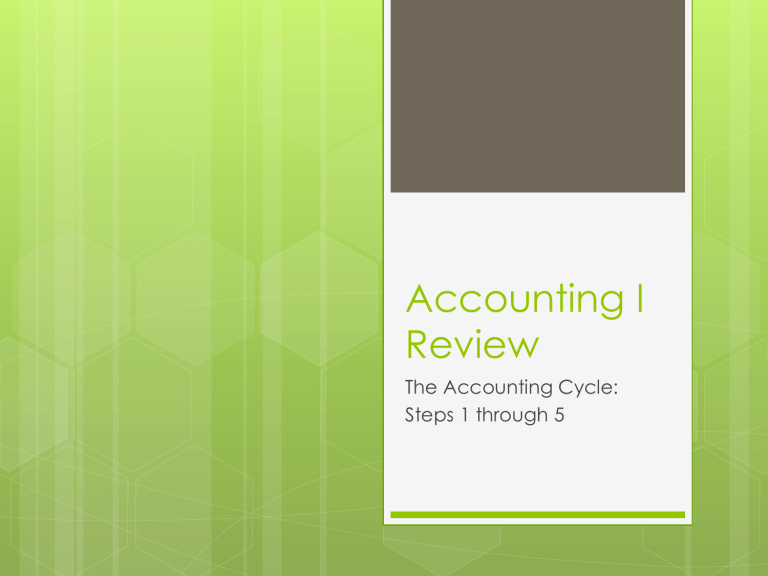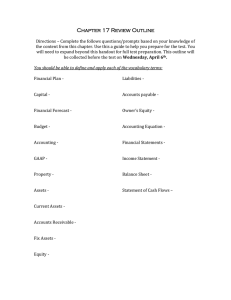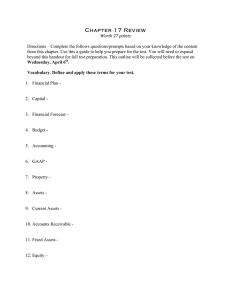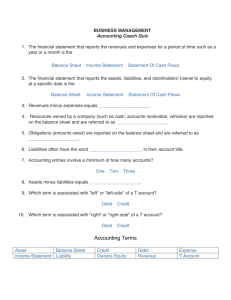Accounting I Review The Accounting Cycle: Steps 1 through 5

Accounting I
Review
The Accounting Cycle:
Steps 1 through 5
Pages 6-11
Vocabulary
Assets
Items of value owned or controlled by a business.
Liabilities
Creditors’ claims to the assets of a business.
Debts of a business
Equity
Owner’s claims to assets
Sole Proprietorship – owner’s equity
Corporation – stockholder’s equity
Vocabulary
Account
Record of increases and decreases and the balance for a specific item (ex: supplies)
Double-entry
Business transactions affecting two accounts
Debit, left
Credit, right
Permanent Accounts
Assets
Liabilities
Owners Equity
Balances are carried forward from one accounting period to the next.
Temporary Accounts
Used for one year
End of year, balances are transferred to the stockholder’s equity account Retained
Earnings.
Revenue, cost of merchandise, and expenses
Write the increase and decrease side
(t-account) for each of the following in your notes…
Assets
Liabilities
Stockholder’s Equity
Revenue
Cost of Merchandise
Expenses
Chart of Accounts
Open your textbook to page 8
Backcountry Outfitters Chart of Accounts
Take a photo with your iPad if needed
The Steps in the Accounting
Cycle
Step #1 – Collecting and Verifying Source
Documents (receipts, memos, check stubs, sales slips)
Step #2 – Analyzing Business Transactions
(determine the debit and credit parts of the transaction – use the seven-step method p.10)
Demonstration Problem 1-1 (On Your Own)
Purple Handout
Accounting Cycle Review
Ch. 1.2 Review
Pages 12-15
Step 3: Preparing General
Journal Entries
Journal
A chronological record of the transactions of a business
General Journal
Two-column journal where all types of business transactions are recorded
Example
On December 1, Backcountry Outfitters sold merchandise on account to Alex Post for $187 plus $7.48 sales tax, Sales Slip 92.
Record in your notes…
1.
2.
3.
4.
5.
6.
Identify the affected accounts.
Classify each of the accounts.
Determine the amount that is increased or decreased for the accounts.
Debit or Credit?
Draw the T-Accounts
Complete the General Journal.



